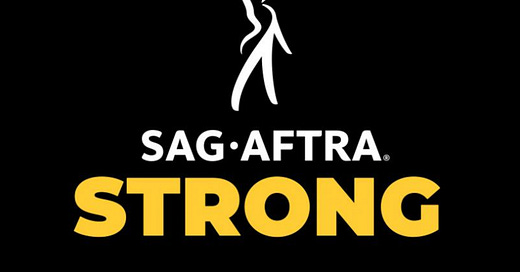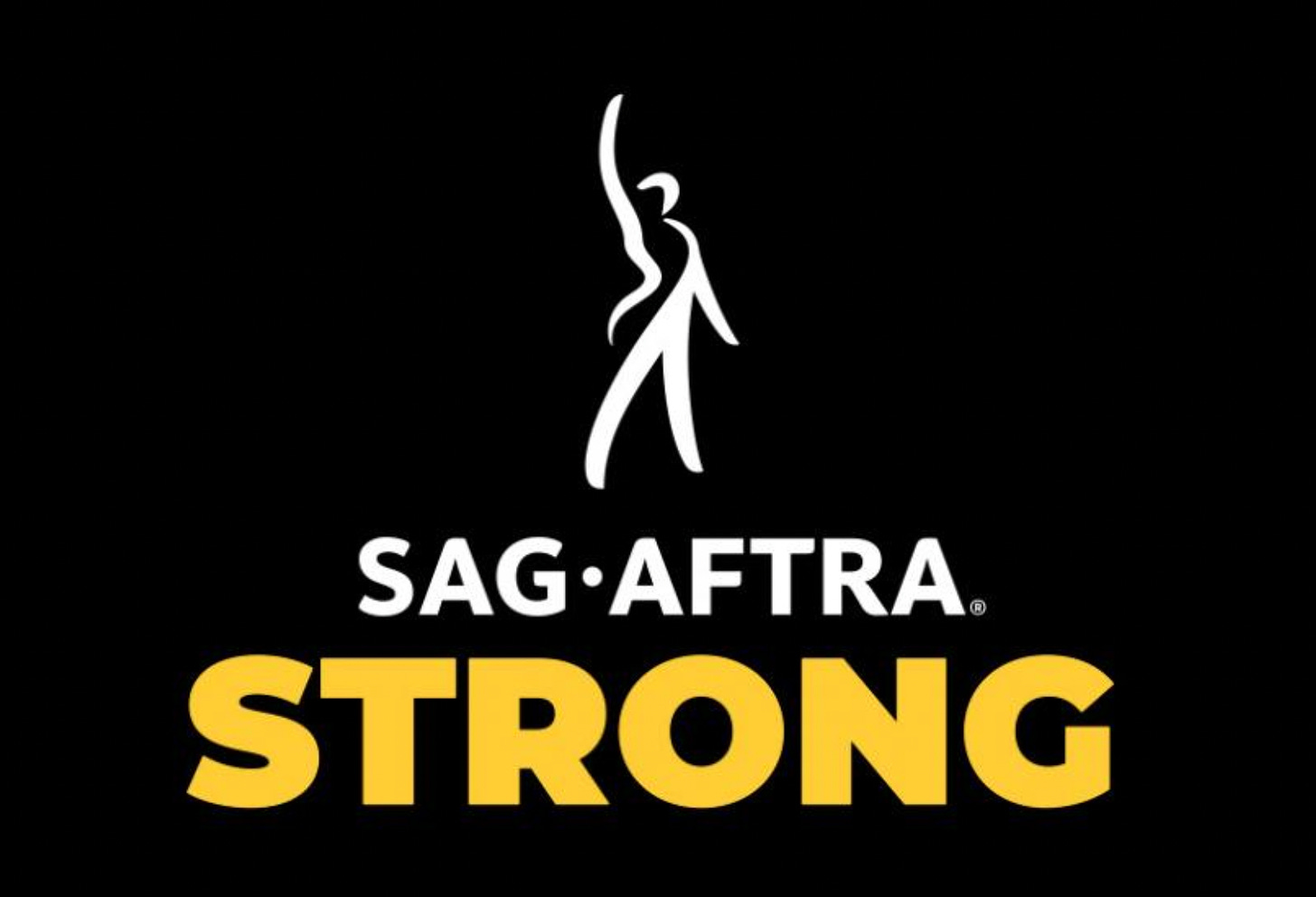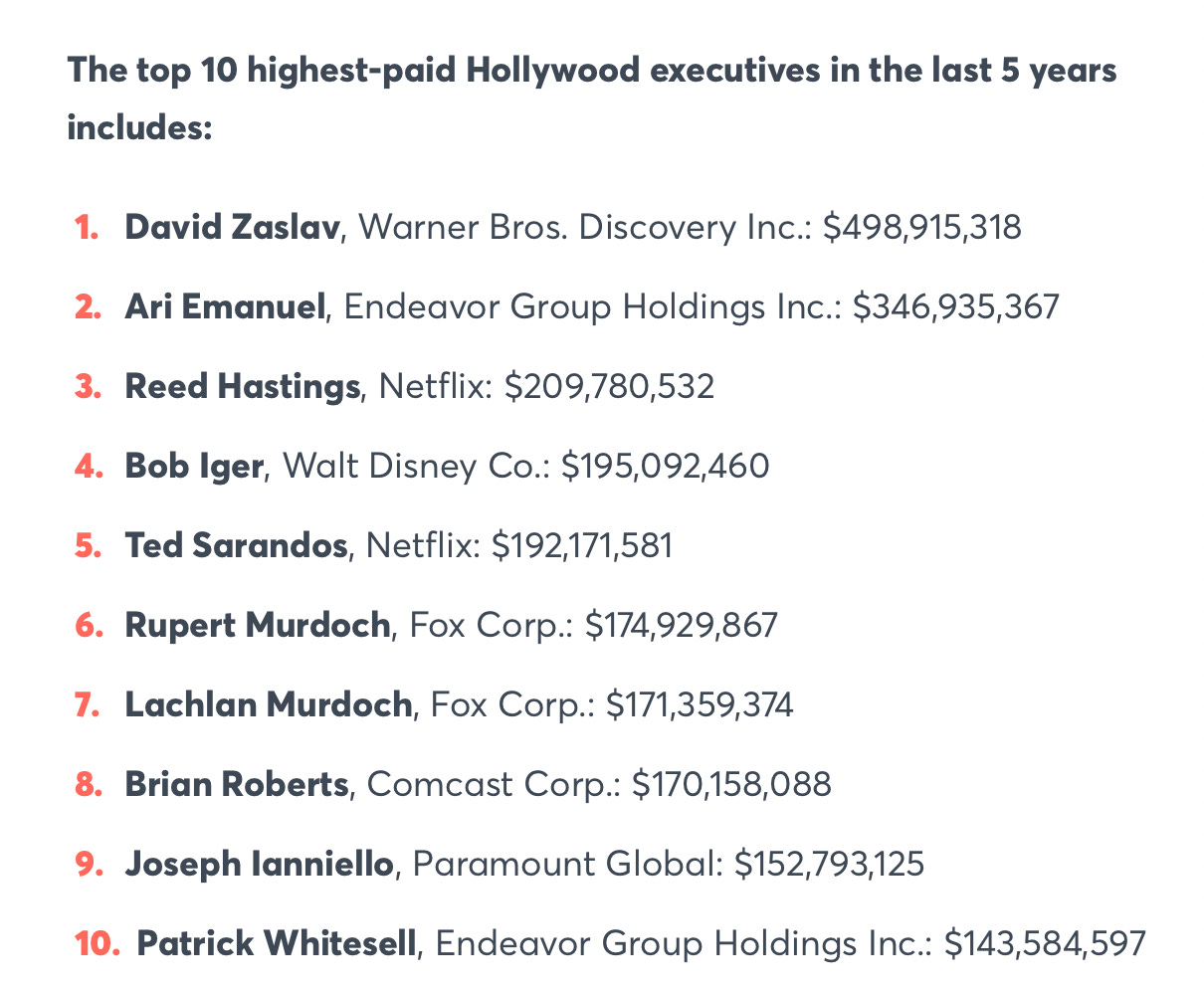The strike against the Alliance of Motion Picture and Television Producers (AMPTP) initiated by the Writers Guild of America (WGA) is now over three months old. It’s been almost two months since the Screen Actors Guild / American Federation of Television and Radio Artists (SAG-AFTRA) joined them.
The writers and actors are striking for fair wages and compensation in an age in which streaming services have decimated writers’ rooms and the residuals both writers and actors receive.
Not surprisingly, the studios are playing dirty, from petty acts like pruning the trees that otherwise provided much-needed shade for picketers, to the more menacing. One executive claimed (anonymously, of course) that the studios planned to "allow things to drag on until union members [started] losing their apartments and losing their houses." In this way, the guilds would be cornered into accepting otherwise unacceptable terms.
What makes all of this much worse is the fact that giving the writers and actors everything they’re asking for would cut into studios’ bottom line by about 2%. In making sense of the massive disparities we’re talking about, it’s important to remember that in order to qualify for health care, SAG-AFTRA members need to make about $26,000 annually. Currently, 86% of members do not qualify.
Writers’ compensation, in particular, has been negatively affected by streaming. Writer’s rooms are smaller and more writers are forced to work for what’s called the Minimum Basic Agreement.
Actors have been similarly impacted by streaming and also seek increased residuals.
Another massive point of contention is the increasingly problematic role Artificial Intelligence plays in the entertainment industry. This is treacherous territory because, in addition to everything else, actors are at risk of losing control over their own likenesses because studios are determined to usurp them in order to save money.
We never seem to learn the lesson that just because we can do a thing doesn’t mean we should (e.g.—use artificial intelligence to steal an actor’s image in order to avoid compensating them fairly). By the same token, collective action against inequality often only occurs after the damage has been done. Hubris and delay, along with the federal government’s failure to regulate social media and technology, help explain how we got here, to this point where studios are allowed to starve their opposition into submission simply because they have the benefit of the resources they’ve stolen from the very people who’ve been creating their wealth all along.
Congress needs to catch up. It’s long past time our politicians started educating themselves about the challenges posed by emerging technologies. At the very least, they should consult with people who know about the complexities and pitfalls of both social media and AI.
The current strike is exposing the power differentials between the studios and those who enrich them. We can finally see the extent to which the people responsible for creating content are getting paid the least and treated the worst while a tiny number of executives at the top are benefitting enormously off of their work.
The strike in Hollywood is representative of a much broader issue. According to Jennifer Liu at CNBC, “The average CEO at a top U.S. company was paid $27.8 million in 2021, including stock awards — 399 times as much as the typical worker.”
Further, “from 1978 to 2021, CEO pay grew by 1,460%, adjusted for inflation, versus just 18.1% for the typical worker. Even during the pandemic, CEO pay increased by 30%, compared with just 4% for the average employee.”
Generally speaking, the richest 1% of people on earth own approximately half of the world’s wealth. There is no universe in which this is either sane or healthy. What’s worse, of course, is that the vast sums of money possessed by a tiny number of individuals affords them an almost unlimited power that dwarves that possessed by average mortals.
Unless we want oligarchy and a permanent underclass, this is unsustainable. And it is so unfair on its face that it’s hard to believe that all working people in America aren’t rising up and standing in solidarity to demand fair wages just as, in the past, they have demanded child labor laws, week-ends, workers’ compensation, and forty-hour work weeks.
We know collective action can be incredibly effective. In July, UPS agreed to a deal with the Teamsters Union in which, on average, the annual salary of full-time drivers will be raised to $170,000, including healthcare and other benefits.
What the rich and the politicians they own have succeeded in doing since the Reagan administration, is convincing white working-class Americans that unions are the enemy of working people, and trickle-down economics (essentially tax cuts for the very rich) will, counterintuitively, lead to economic equality. These are lies.
We must stand against them at every opportunity. We must stand with unions. SAG-AFTRA strong!








- The GOP and their supporting white, rich, upper-class gaslighted us with "unions are bad" and "trickle down economics works" long before gaslighting was even a common term.
- Unions aren't bad and trickle down economics doesn't work. The past 1.5 - 2 years of Bidenomics should be enough strong proof of that.
- Thanks for the reminders and the support for us common folk Mary!
Wow. I had no idea that actors and screenwriters were being treated this unfairly. It absolutely floored me. So thanks for collecting that data for us. I for one will turn off the tv and stop going to movies altogether if that might help. It might, if a lot of us called a strike against the studios by not paying for their stolen work. No? And as a musician who has been ripped off by the record companies, the AI thing makes me crazy. To think that they can steal an actors image ? And then use it for their own profits? Only?!! I'll refuse to go to a theater and look at an AI representation of ANYbody!
So I have a question. How will we know, when the studios begin to use AI this way? Are they now? Is anybody setting up a site where we can check for every movie and tv show we watch? Thanks Mary. A very nice piece of work.